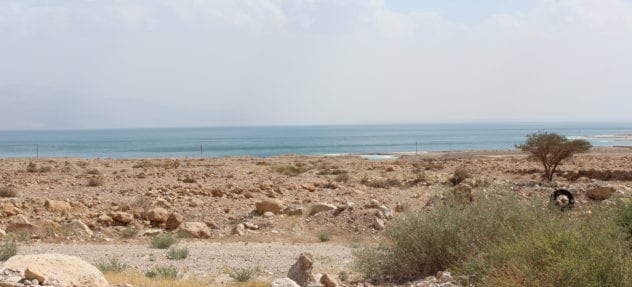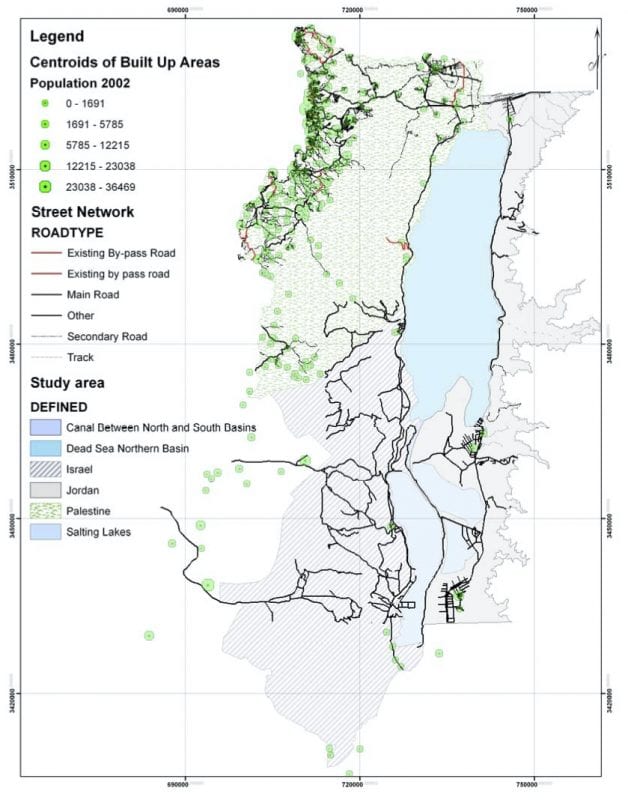
The Arava Institute has established the Jordan River and Dead Sea Basin Forum (JAD) a network of water professionals and policy makers throughout the region.
One of The Center’s main areas of focus is the Dead Sea, which is declining at an alarming rate of one meter per year. Though there are many reasons for the decline, the main cause has been the diversion of the freshwater source via the Jordan River by Israel, Jordan and Syria. These countries use the freshwater that would otherwise flow to the Dead Sea for domestic and agricultural purposes.
The Center currently works on research to try to prevent Dead Sea destruction.

- Developing an environmental impact study on behalf of the World Bank for the ecological impact of the proposed Red Sea-Dead Sea conveyance project
- Developing a regional database on water and land use for the Dead Sea basin tin collaboration with Jordanian and Palestinian partners
- Working closely with government agencies to develop practical policy solutions to save the Dead Sea
- Working in rural communities in the Dead Sea area in Palestine and Jordan to help improve the communities’ water and wastewater infrastructure
- Engaging stakeholders throughout the Dead Sea basin on developing cooperative strategies to save the Dead Sea. These stakeholders represent government, industry, tourism and farming
- Developing research on how to accurately map sinkholes along the Dead Sea shoreline and to develop a hazards map for sinkhole hot spots
- Developing an integrative management plan for the restoration of the Jordan River and the Dead Sea basin in terms of a watershed management approach
- Working with international consortia to develop sustainable options for saving the Dead Sea
- Developing a comprehensive analysis of all scenarios that have been proposed in the past for linking the Dead Sea to the Red Sea or to the Mediterranean Sea
Arava Institute researchers were contracted by the World Bank to participate in a feasibility study of a Red Sea – Dead Sea conveyance. The Arava Institute conducted an environmental impact assessment of the proposed conveyance route on the ecology of the Arava valley.
A pre-feasibility study, sponsored by Willner Bros. Ltd. and written by Arava Institute researchers provides a comprehensive summary of previous research done on the Mediterranean-Dead Sea conveyance. It describes four different potential Med-Dead solutions from a historical, economic, engineering, environmental and political perspective. The researchers highlight the potential for the Med-Dead conveyance to contribute to water security, energy security, and food security in the region, factors which have implications for regional cooperation between Israel, Jordan, and the Palestinian territories.
- A Future for the Dead Sea Basin: Water Culture among Israelis, Palestinians, and Jordanians. By Dr. Clive Lipchin. Found in: Hillel Shuval and Hassan Dweik (Eds.) Israel – Palestinian Water Issues – From Conflict to Cooperation.
- Dead Sea Conduits Study by Willner, Lipchin, Kronich, Amiel, Hartshorne, and Selix
